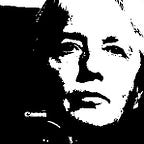‘Expert’ in Homelessness?
‘Doctor’ May Need Further Training!
Dr. Scott Klingberg, director of ministry operations for Gateway Mission in Holland, said when leaders talk about homelessness, they shouldn’t ask whether they’re doing enough — but rather, are they offering real help and real solutions?
Klingberg said one method can’t be used to effectively treat all cases of homelessness. He compared it to going to the hospital. If two people enter an emergency room, one with a broken arm and one with abdominal pain, they expect different forms of treatment. (Holland Sentinel, 2/1/23)
Righteousness is a terrible malady. It is highly contagious, too. Unfortunately, it afflicts those in position to help those “down and out,” creating a convenient barrier between “us and them.” As I began reading Dr. Klingberg’s comment about homelessness needing something other than “one size fits all” approach, I was encouraged. Then, not.
Dr. Klingberg, from what I can tell, isn’t a medical doctor. He works at a gospel rescue mission. I’ll admit my prejudice with these programs. Based on plenty of anecdotal accounts from guys at our shelter, and my own observations of the local mission and some around the country over the years, I developed a healthy aversion to forcing God on those with no options. Sure, rescue missions do save lives, and I’m sure they’re happy if they can save souls, but…don’t be so damn righteous!
What the Doctor said at first,
He compared it to going to the hospital. If two people enter an emergency room, one with a broken arm and one with abdominal pain, they expect different forms of treatment…
…was spot on. But then…
Klingberg said the conversation needs to focus on underlying problems. The “invisible poverty” rather than “visible” items like food, clothing and shelter.
That includes poverty of relationships (broken relationships, family disintegration), poverty of truth (not knowing a way out, seeking substances, mental health issues), poverty of identity (not knowing where they belong, connectedness, a sense of value) and the poverty of hope (suicidal, hopeless).‘At what point does the insanity stop? How many free housing vouchers do we have to give away to realize it isn’t working — but rather sweeping the problem under the rug so it’s not seen?’
He dismissed the provision of housing vouchers, as if housing isn’t part of the solution. I read his remarks as “damn freeloaders!” I think what he’s getting at is people need good ol’ time religion. (I could be wrong.)
People need a place to live — not a shelter, though in a pinch it’s good to at least have a safe place to stay — and maybe they need support dealing with trauma. God might work for some, but not for everyone.
The different “poverty” examples he mentions above have human origins that often originate from what happens to people, aka TRAUMA.
Trauma — as my favorite trauma guru, Dr. Gabor Maté puts it, is…
…a psychic wound that hardens you psychologically that then interferes with your ability to grow and develop. It pains you and now you’re acting out of pain. It induces fear and now you’re acting out of fear. Trauma is not what happens to you, it’s what happens inside you as a result of what happened to you.
Wound. Pain. Fear. Any of us who’ve experienced those things know how devastating they can be. And when it’s a deep wound, well, it takes its toll. It can impact judgement. It can, and often does, cause physical and mental health problems. Sadly, the physical and mental health treatment needed becomes harder/impossible for people in poverty to access, then they spiral into really bad situations.
Let’s Look Under ‘the Rug’
One (of many) example of how our society doesn’t understand and/or ignores trauma is found in this article about women suffering from postpartum depression, or at worst, psychosis. Worst case, postpartum can be deadly. Ask any mother who’s experienced this agony if help is available, or understanding is common.
Those with histories of mental health issues, lack of social support, or traumatic experiences giving birth, for example, are at a higher risk for developing these conditions.
Women of color are also more likely to experience postpartum depression than white women and far less likely to receive appropriate care. Boston Globe, 1/27/23
Masterpiece or Malfunction on the Mississippi
I’m on my way to Dubuque, where I’ll engage in a dialogue with those working with families and adults experiencing homelessness. My friend Jeff, who ironically works at a gospel mission, understands the various challenges that homelessness causes. He’s humble and compassionate enough to know that different people will respond differently to offers of help.
I will hopefully be able to shine a light on the need for COMPASSION, CONSISTENCY, COMMUNITY. Appropriate places to stay — on an emergency and permanent basis — with supportive services if needed — are the basis for addressing homelessness.
One More Question, Doctor…
I’d like to ask Dr. Klingborg to take his emergency room example a step further —
what happens to those without insurance or means to pay for their treatment?
Sadly, what happens in hospitals and government housing programs is similar: too little help, too late, and you’ve got to pay. For those suffering with physical and/or mental distress, or lacking a place to live, such “help” inflicts as much pain as doing without help. For the housing-challenged, eviction, being barred from housing (government and private rentals), and a life of homelessness is the price they pay.
Two systems in drastic need of fixing.
Let’s not blame those who are victims of this dysfunction. And maybe it would be good to not add to their suffering.
